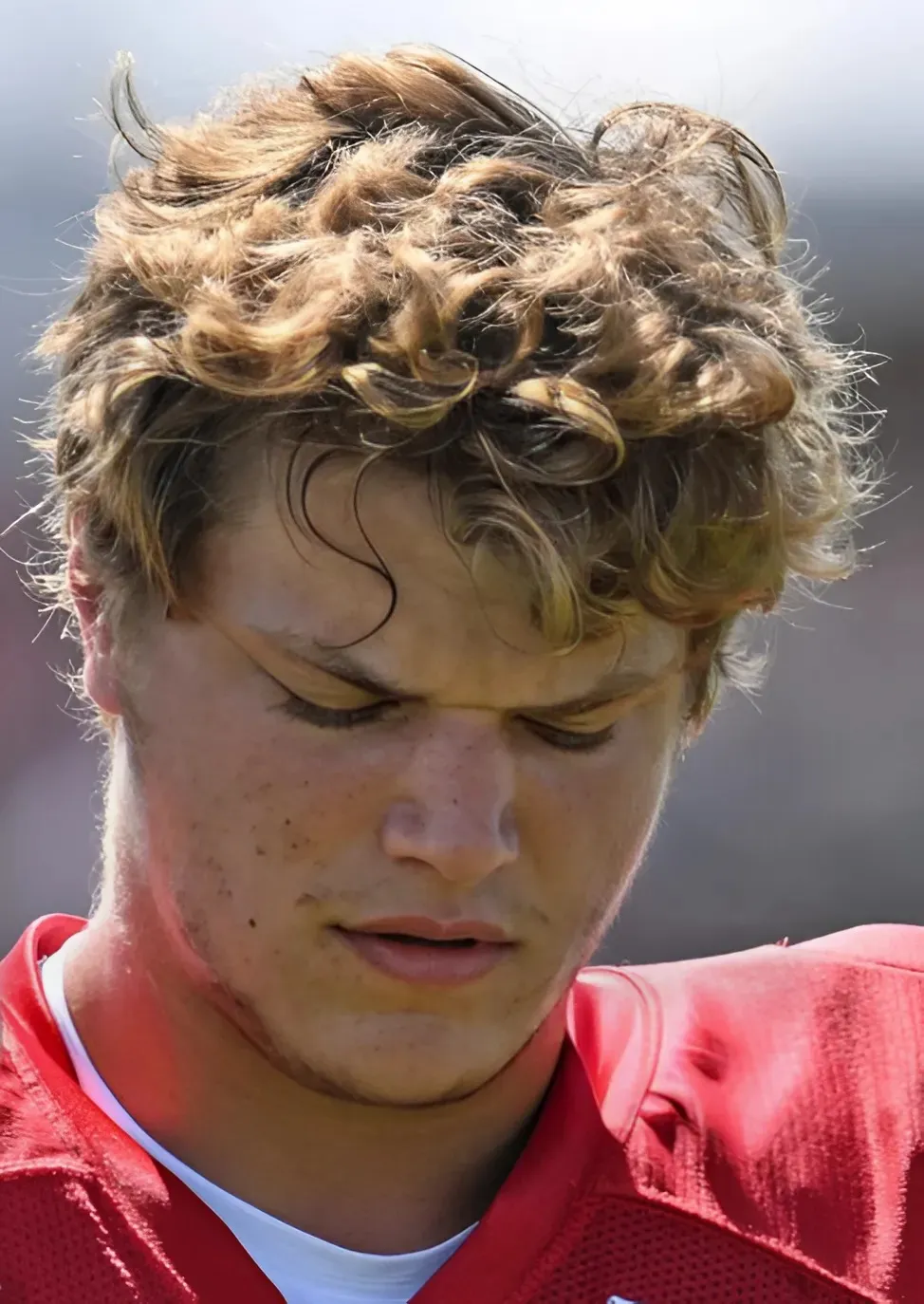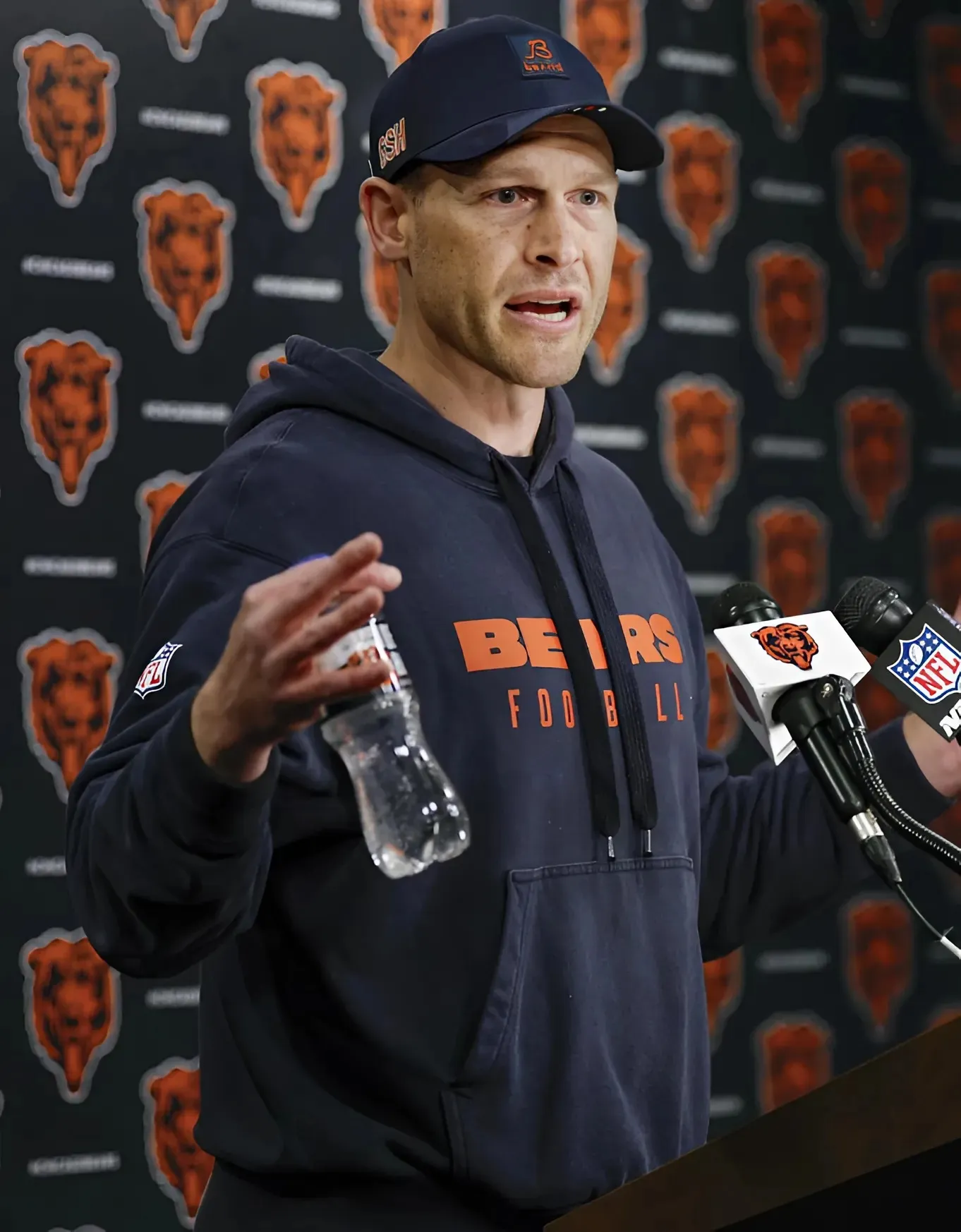In a 34-man club of left-handed quarterbacks to appear in an NFL game, Michael Penix is a rarity -- but that alone doesn't alter the Atlanta Falcons' offense.
FLOWERY BRANCH, Ga. -- Atlanta Falcons quarterbacks coach D.J. Williams often jokes with Michael Penix Jr. that he's wrong-handed.
Penix is one of two left-handed starting quarterbacks in the NFL, joining the Miami Dolphins' Tua Tagovailoa. Williams, a 6' 4" right-hander who played in 38 games under center from 2011-14 at Grambling State University, has to re-wire his brain when teaching concepts and fundamentals to Penix.
Teaching aside, the spin of the ball is different -- it trails the opposite way from right-handed passers. There are, naturally, challenges to overcome with unique and statistically rare players.
But there are far less obstacles than outside perception suggests.
***
Falcons head coach Raheem Morris and general manager Terry Fontenot looked at each other and smiled. They'd already discussed the question behind closed doors and perhaps knew it was coming after selecting offensive tackle Jack Nelson in the seventh round of the 2025 NFL draft.
"I feel like I’ve had these conversations 19 times," Morris said with a wide grin.
He then dove into the dynamics of whether having a left-handed quarterback changes the way he thinks about his offensive line. In his usual free-flowing, matter-of-fact tone, Morris delivered the specifics as to why it doesn't -- as if he'd rehearsed or simply done it many times prior.
"I don't think it's as big of a deal as it would have been if the game was played from up under like it was in the 90s as much," Morris said. "I think that was a little bit bigger of a deal then."

The reason is evolution. As opposed to the NFL of old, when there were significant drop-back passing plays and three-, five- or seven-step drops, the blindside blockers had more pressure to protect quarterbacks.
Now, with passing offenses trending more toward shotgun -- or, in Atlanta's case, pistol -- formations,
signal callers have to drop from under center far less frequently. Quarterbacks are often front-facing, which Morris said enables them to see both sides of the offensive line as they're reading defenses.
The Falcons, of course, want to protect both sides, but they're less worried about the specifics and more focused on getting the job done.
"It's a little bit different," Falcons offensive line coach Dwayne Ledford said. "If there was a lot of stuff underneath center that you used to see, I think you would have those conversations. But now, with everything being in the gun, or pistol for us, it's a little bit different now. There hasn't been any conversations with either of the tackles."
It doesn't deter the Falcons' run game, either. Their stretch plays and run direction is unaffected by Penix, in large part, Morris said, due to his athleticism and 10 1/2-inch hands.
"He does such a good job of getting that ball out there, getting it to those guys," Morris said. "He's got such big hands, too. He can catch the ball, and he's outstanding with that stuff. So, get the ball out there -- wherever the ball is snapped -- being able to get it to those guys, get into those lanes so they can get on those tracks, I think is outstanding."
***
Before Penix's first career start against the New York Giants on Dec. 22, a small group of Falcons receivers spent time catching passes from a Jugs machine that sent ball-after-ball spiraling towards them -- with a lefty spin.
It didn't net immediate returns. The Falcons dropped a pair of passes on the opening drive and had several others throughout the game, though Atlanta surged to a 34-7 victory.
Drops from Penix's spin were a natural consequence after getting minimal time working with the first-team offense during the summer and first 15 weeks of the season.
That required an adjustment. But little else changed for Falcons offensive coordinator Zac Robinson.
"There might be, like, within our playbook, a couple things you adjust and you say, 'Hey, we're going to call this a little bit more than we call this,' because of the lefty," Robinson told Atlanta Falcons on SI on Wednesday.
"But like, I would say 99.8% of the offense -- right- or left-handed, it really doesn't matter. (It's the) exact same."
If, for a specific play, right-handed backup quarterback Kirk Cousins's first read is on the left side of the field, the same applies for Penix.
"It's all -- concepts are all the same, all the patterns are the same," Robinson said. "Some of the play action protections, possibly, but the way we've kind of morphed some of them, they can go both ways now. ... There's really no limitations in terms of what you can do based on right hand or left hand."
Play action poses another unfounded concern. Robinson said the old-school way of thinking centered around right-handed quarterbacks rolling to the right, which, theoretically, would force Atlanta to flip all of its bootleg concepts. But modern quarterbacks -- Penix included -- are so talented and athletic, Robinson said, that they can roll either direction.
Penix is in rarified air. He's part of a 34-member club of left-handed quarterbacks who have appeared in an NFL game. Watching and coaching the 25-year-old may necessitate a mental re-programming for those so accustomed to righty passers.
But as for the offense itself, the Falcons have no need to make any changes.
"It's never been anything you really think about," Robinson said. "Like, obviously, you're talking about the quarterback's footwork in a little bit different way. But the concepts, how everything times up, nothing's different. Quarterbacks have the ability to move right and left now. It's not that big a deal."


-1741756090-q80.webp)
-1748592415-q80.webp)